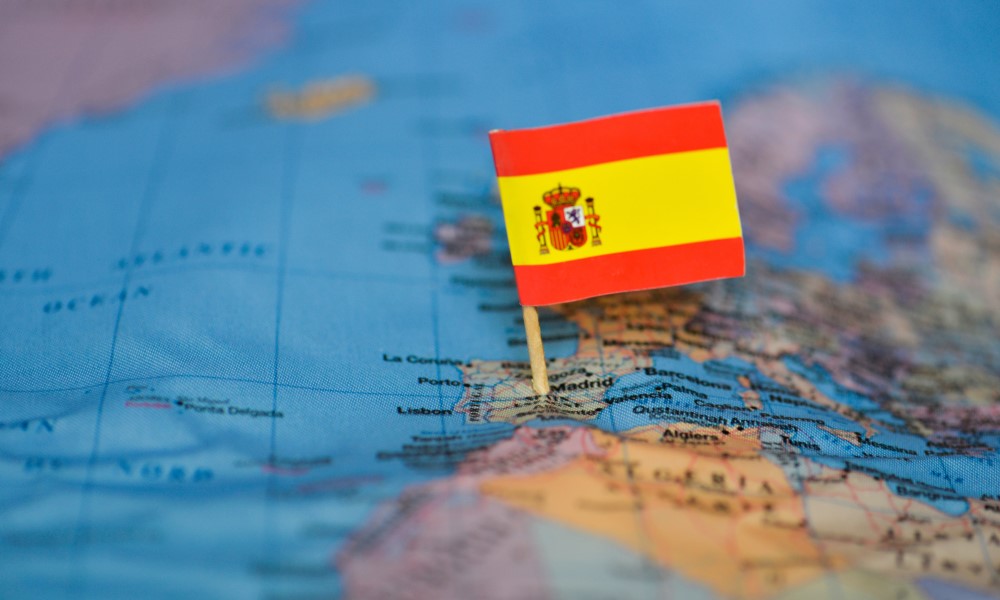The education system in Cyprus is sophisticated and well-developed, with many options in the public and private sectors. For a family relocating to the country with older children, Further and Higher Education will be of paramount importance, while lifelong educational opportunities enhance employability and enjoyment of life for students of all ages; all factors that need to be taken into consideration when planning to apply for residency in Cyprus.
This article focuses on further and higher education, but for more information about younger levels of education, please see our post: Primary And Secondary Education In Cyprus
Overview of Further and Higher Education in Cyprus
There are varied options available in Cyprus for people beyond secondary school age. Cyprus considers education to be a lifelong process, enhancing and enriching people’s lives while equipping them to be creative, tolerant, resourceful and skilled members of society. The country enshrines the right to education in Article 20 of its constitution, extending the right to education not only to its own people but also to anyone residing in Cyprus regardless of status and whether legally resident or not.
State Institutes Of Further Education
There are 40 State Institutes of Further Education across Cyprus, attended by over 17,000 students. They offer courses to students of all ages plus adults, both in urban and rural areas. The institutes offer a wide range of courses including:
English, French, Italian, German, Russian, Greek for foreigners, Turkish, Accounting, Computer Studies, preparatory courses for the entrance exams to Greek Universities and the University of Cyprus, and intensive courses for Gymnasium and Lyceum.
The Cyprus government has a policy of creating bridges of communication between the Greek and Turkish communities of Cyprus. To this end the state Further Education institutions offer courses of Greek for Turkish Cypriots and Turkish for Greek Cypriots free of charge. State Institutes of Further Education continue to offer reinforcement courses for children of parents from Turkish-Cypriot enclaves.
Scholarships and Allowances
The institutes offer allowances and scholarships to needy or particularly excellent students. Full or partial scholarships are offered to 10% of children, who are considered needy. Children of large families of five or more members pay 50% of fees. The third child of any family does not pay fees. Free tuition is also offered to children of the repatriated and emigrants who attend Greek classes and to Turkish Cypriots who attend Turkish lessons.
Registration takes place in May and September and after successful completion of their courses students receive a Certificate Of Success.
Further education is also provided by a system of Evening Technical Schools and Afternoon and Evening Departments of Technical Schools.
The courses offered by the Evening Technical Schools are equivalent to those offered at the Technical Schools for students of Secondary School age.
Courses offered by the Afternoon and Evening Departments of Technical Schools are aimed at people in employment, delivering training so that they can adapt to the changing demands of the workplace.
Higher Education
The government of Cyprus aims to provide tertiary education to the greatest number of people possible. There are a variety of state and private Higher Education institutions available covering University and non-University options, all of which contribute to the government’s objective of making Cyprus a respected destination for both domestic and overseas students.
Advantages of Higher Education in Cyprus
There are many advantages and benefits of undertaking Higher Education in Cyprus:
- Top-quality educational standards, corresponding to European standards. Diplomas obtained in Cyprus are highly regarded around the world;
- The ability to gain a double diploma by studying first in Cyprus and subsequently in a partner university in the UK, USA or Europe;
- Affordable tuition fees coupled with low costs of living. Advisers at the universities can help with finding accommodation and rent/food costs are reasonable;
- Very good employment prospects with a Cypriot degree; advisers are on hand to help with the search for a job after the student has graduated. Cypriot students are allowed to work while they are studying. However, at present foreign students are not permitted to do this, although it is believed that the rules on this will be relaxed;
- A system of scholarships and rewards exists for foreign students who achieve excellence. For significant academic and scientific achievements, discounts of 30% to 100% are offered;
- No entrance exams for foreign students. It is acceptable to provide a certificate of competence in English. (However this is not enough for medical and creative professions for whom there are entrance exams or creative competitions to qualify for admission.);
- Private universities and institutes for education accept students all year round, rather than just in the autumn as the public institutions require.
State Universities
- The University of Cyprus was established and is overseen by a law passed in the House of Representatives 1989, admitting its first students in 1992. It was founded in response to an increased demand for Higher Education in the country, and to fulfil social, economic and other objectives of the Republic. It promotes scientific research in all departments, aiming to contribute to academic development and to meet local needs, offering programs of study at Degree, Masters and Doctorate levels. From €3,417 per year for EU students. From €6,834 for non-EU students.
- The Open University of Cyprus was established by a law passed in the House of Representatives in 2002. It admitted its first students in 2006. It offers programs of study by distance learning in the following subjects: Studies Of Hellenic Civilisation (Undergraduate); Specialisation In Information Systems (Postgraduate); Education Studies (Postgraduate) and Administration Of Health Units (Postgraduate).
- Undergraduates are exempt from tuition fees, however a fee per module is charged to cover administration costs. Non-EU citizens pay a different rate from EU citizens. Masters degree courses incur tuition fees, which vary according to the course. PhD students are charged fees of €675 per semester for the first three years, thereafter €337.50 per semester for the next five years of study. Independent modules and short-term programs charge tuition fees for each module. There is a 5% discount for students who pay in full the cost of their chosen thematic units for the current academic year within the advance payment period.
- The Cyprus University Of Technology was established by a law passed in the House of Representatives in 2003 and opened its doors to its first students in 2007. The University is based in Limassol and was the first university to be based outside the capital, in keeping with the government’s wish to offer decentralised services. The University offers programs of study mainly in the field of Applied Sciences. Fees: From €5,000 per year
Private Universities
The House of Representatives passed laws in 2005 which allowed for the creation and regulation of private universities. The first such universities started taking students in 2007 and there are now a number of private universities across Cyprus:
- Frederick University. Fees: From $6,600 per year
- European University Cyprus. Fees: From €8,900 per year
- The University of Nicosia. Fees: From €9,120 per year
- Neapolis University, in Paphos. Fees: From €5,000 per year
- University of Central Lancashire in Cyprus (UCLan Cyprus), in Larnaca. Fees: From €760 per 4 weeks
- Philips University of Cyprus. Fees: From €10,000 per year
- Cyprus International University. Fees: From €2,000 per year
- American University of Cyprus. Fees: From €9,100 per year
- American University of Cyprus. Fees: From €3,658 per year
Degrees Offered
Bachelor level degrees within the state universities are offered in the following areas: Humanities; Pure and Applied Science; Social Science and Education; Economics and Management; Letters; Engineering and Technology; Health Science; Medicine; Technological Science; Geotechnical Sciences and Environmental Management; Law; Fine and Applied Arts.
Admission Requirements
Within the state universities admissions are set annually at a limited number decided by the university’s Council and approved by the Council of Ministers, on the recommendation of the Minister of Education. At the University of Cyprus and the University of Technology of Cyprus, Bachelor degree admissions are based on entrance examinations. In order to be eligible for the exams, candidates must be Cypriot citizens with at least one Cypriot parent. They must also have gained a school leaving certificate from a lyceum, a technical school or a recognised private school.
There are a small number of admissions based on certain special criteria including: international students; children of missing parents arising from the Turkish invasion; students with special needs; mature students; Greeks from the diaspora; Cypriots belonging to certain ethnic or religious groups; and Turkish Cypriots.
Admissions to the Open University of Cyprus are not based on entrance examinations but prospective students submit an application which is then ranked according to a number of criteria. In order to apply for an undergraduate course students must have completed and passed secondary level education and have a good knowledge of Greek. They must be technically proficient with the use of a computer and be able to use the internet. The criteria used for ranking their application include the grades they achieved at secondary level and the number of years that have passed since they were in education; their proficiency in foreign (European) languages; any post-secondary level diplomas; and their employment status.
Admissions to the private universities are administered and controlled by the Private Universities (Establishment, Operation and Control) Law N. 109(I)/2005 and its amendments, N. 197 (I)/2007 – N.74(I)/2011. For Bachelor level degrees the universities require a leaving certificate from a recognised school of secondary education or an equivalent qualification acquired in Cyprus or abroad.
Masters Degrees
Masters degrees are offered by state and private universities and by institutions of Tertiary Education. Students can study full or part-time. Masters programmes are offered in all of the areas covered by Bachelor degrees.
Admission Requirements
All of the state universities follow a policy of restricted admissions set by the Council of Ministers upon the recommendation of the Minister of Education. The applicant for a Masters degree must have passed their undergraduate degree and they are then subject to a number of criteria set by the university including: academic ranking, letters of recommendation and personal interviews. The University of Cyprus has additional criteria including the numbers of years elapsed since obtaining the first degree; and any working experience that is relevant to the course.
PhD Programmes
All state universities offer doctorate programmes. Main areas of study include: Humanities; Pure and Applied Sciences; Social Science and Education; Economics and Management; Law; Engineering; and Health Sciences.
The Open University offers PhD programmes in Health Care Administration; Educational Sciences; Information Technology; Greek Culture; Greek Language and Literature; Theatre Studies; Environmental Management and Protection; and, Communication and Journalism.
Private universities offer doctorates in the fields of Education and Engineering. The Cyprus Institute, a non-profit-making institution for science and technology research and education, offers doctoral programmes in the areas of Computational Sciences; Digital Cultural Heritage; and Environment and Atmospheric Sciences.
Admission Requirements
The state universities follow a policy of restricted admissions set by the Council of Ministers upon the recommendation of the Minister of Education. To apply for a PhD the applicant must hold a Masters degree in a related subject. The institutions select the students themselves.
Free Healthcare For PhD Students From Cyprus/EU
Students from Cyprus and the EU countries who are studying for a PhD are eligible for free healthcare in public hospitals in Cyprus. Students from countries not in the EU are required to take out private health insurance.
State Tertiary Education Institutions
There are a number of state Tertiary Education institutions which do not have university status, including:
- Forestry College of Cyprus – Ministry of Agriculture, Natural Resources and Environment (Tel. +357-25 813606). No fees
- Higher Hotel Institute – Ministry of Labour and Social Insurance (Tel. +357-22 404800, [email protected]).
- Tuition fees for international students are from €3,845, plus all students incur fees for materials, from €343 per academic year.
- Mediterranean Institute of Management (ΜΙΜ) – Ministry of Labour and Social Insurance (Tel. +357-22 806000)
- From €3,900 per year. A student grant of a maximum of €2,565 per year is provided by the Cyprus government.
- Police Academy of Cyprus – Ministry of Justice and Public Order (Tel. +357-22 808030)
- Post-Secondary Institutes of Vocational Education & Training (PSIVET)
- Cyprus WFTGA International Training Centre (CY ITC) for Tourism Guides
Private Tertiary Education Institutions
There are 45 private Tertiary Education Institutions across Cyprus which, although not having university status, offer academic and vocational courses at Undergraduate and Postgraduate level. The accrediting authority is the Council Of Educational Evaluation-Accreditation (CEEA/S.E.K.A.P.) which is a member of ENQA (the European Association for Quality Assurance in Higher Education).
Non-university level private institutions of higher education offer short-cycle vocational and academic programmes, either at the Certificate level (one-year duration), the Diploma level (two-year duration) and the Higher Diploma level (three-year duration). Fields of study cover Secretarial Studies; Business Administration; Banking; Accountancy; Hotel Management, Computers and Engineering.
Admission Requirements
The number of students in the public Tertiary Education establishments is determined by the Council of Ministers, based on the recommendation of the relevant Minister in each field. The institutions require a school leaving certificate from a recognised secondary school or an equivalent qualification from abroad. In addition, institutions running three-year diploma courses take into account the students’ results from their secondary examinations.
Private institutions set their own admissions criteria but again a school leaving certificate obtained in Cyprus or the equivalent obtained abroad, is a pre-requisite.
Recognition Of Educational Qualifications
As a member of the European Union, Cyprus has signed up to the Lisbon Convention of 1997 which made it law that all member states establish National Councils who would be responsible for the recognition of degrees awarded by Institutions of Higher and Tertiary Education. The National Council for Cyprus is the Cyprus Council of Recognition of Higher Education Qualifications (KYSATS).
Useful Contacts:
Addresses of Higher and Tertiary Education Institutions:
- Websites: www.highereducation.ac.cy
- www.moec.gov.cy
- E-mail: [email protected]
- Telephone: 22 800616/617 Fax: 22 427560
Examination Service:
- Website: www.moec.gov.cy
- E-mail: [email protected]
- Telephone: 22 800626/763 Fax: 22 427562
Scholarships for Higher Education
The Cyprus State Scholarship Foundation awards scholarships to Cypriot students based on academic performance or based on academic performance plus socio-economic status. Scholarships are available of up to €3,000 per year for undergraduate studies and up to €4,000 per year for Masters degrees.
The Ministry of Foreign Affairs, as part of its mission to collaborate with academic institutions and research centres specialising in European Union issues, has created a scholarship to the College of Europe in either Belgium or Poland. One scholarship of €27,000 is available to cover the student’s tuition fees and living expenses.
Individual institutions offer scholarships based on their own criteria. It is advised to contact each institution separately for more details. However, some scholarships are listed below:
- Cyprus International University offers scholarships to all international students, of 50% of tuition fees. It also provides academic scholarships from 50% to 100% of tuition fees and other fees, based on academic merit. Graduate scholarships cover 50% of the tuition fees and are based on excellent academic achievement at Masters and PhD level;
- University of Central Lancashire, Cyprus offers scholarships for undergraduates and graduates from specific countries. Undergraduate scholarships offer a 40% to 50% reduction on tuition fees and are based on merit. Postgraduate reductions of 30% on tuition fees are available to students based on academic merit and exemplary behaviour. The university also offers athletic scholarships for students of various sports teams, who also have to meet certain academic criteria;
- University of Nicosia offers scholarships to all students based on academic or athletic merit. Academic scholarships are offered to full-time students only. Athletic scholarships are awarded to students actively involved in sports teams in the university. Students can get up to a 40% reduction in tuition fees;
- Frederick University offers full and partial scholarships at undergraduate and postgraduate levels, based on academic performance;
- University of Cyprus provides full and partial scholarships for postgraduate students based on academic merit. The scholarships are valid for one academic year and then have to be renewed. The university also offers program-specific scholarships.
- European University of Cyprus offers its existing international students academic scholarships based on their grade-point averages. These cover part of the tuition fees. The university also offers athletic scholarships based on outstanding achievement of students in its sports teams. Scholarships cover 5% to 25% of tuition fees. There are also some scholarships for the PhD programs and for alumni programs.
Lifelong Education
Programmes Of Lifelong Education And Learning
Cyprus recognises that the need for education and learning is a lifelong process in order to produce adaptable citizens who are equipped for all aspects of life and the workplace. To this end, lifelong education is provided through a system of Evening Technical Schools and Afternoon and Evening Departments of Technical Schools.
The courses offered by the Evening Technical Schools are equivalent to those offered at the Technical Schools for students of Secondary School age.
Courses offered by the Afternoon and Evening Departments of Technical Schools are aimed at people in employment, delivering training so that they can adapt to the changing demands of the workplace. They also provide preparatory courses to students from Technical Schools who are preparing to take exams.
Training Centres
Training Centres in Cyprus provide lifelong education for all. They aim to facilitate a rounded development of the personality and to encourage the social, economic and cultural progress of individuals, community and society. To achieve this aim they offer training opportunities to thousands of individuals aged 15 or over. They have a particular duty to offer opportunities to groups with special needs and therefore offer special programs for disadvantaged people such as: people with disabilities both physical and mental, people who are not literate, deaf people, convicts, children from parents in enclaves, and pensioners. Training opportunities for learning Greek are available to Pontic Greeks (an ethically Greek indigenous group of people in North-East Anatolia), children of repatriated Cypriots and to Turkish Cypriots. In addition they run courses in Turkish for Greek Cypriots.
Training Centre fees are as follows:
- Cities: €51
- Countryside: €41
- Communities with less than 500 residents: €20
- Computers (Cities/Countryside/ Communities with less than 500 residents): €59
- The Greek language for Turkish Cypriots: Free of charge
- The Turkish language for Greek Cypriots: Free of charge
- People over the age of 65: Free of charge
Evening Classes
Evening classes are classified as coming under Secondary Education. They are open to students who have reached their 18th year of age, or to those who have reached their 15th year of age and can demonstrate that they are working as their livelihood or are housewives.
Fees for classes at Adult Education Centres are as follows:
- Urban or Rural areas: €55
- Communities with less than 500 inhabitants: €27.50
- Persons 65 years of age and older: €27.50 (photocopy of their ID must be presented to the instructor at their first meeting).
- Persons 65 years of age and older, attending classes in communities of less than 500: €13.75 (photocopy of their ID must be presented to the instructor at their first meeting).
- Persons with a handicap deficiency of 75% and over are entitled to free attendance on all offered classes provided that they present their invalidity certificate to their instructor at their first meeting.
It is clear that families with older children, who are considering relocating to Cyprus, will find abundant opportunities for their children’s further and higher education, as well as additional facilities for lifelong study. Great thought has been given by the Cyprus government in encouraging learning for all members of the Cypriot community, regardless of age or status. Families wishing to relocate need have no worries about the standard of education or the atmosphere of inclusivity within Cypriot educational establishments, where foreign students are welcomed and valued.













